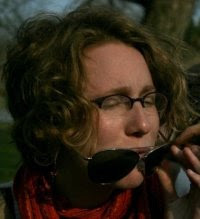After my last post, The Arts and the Civilization Contract, my dad sent me a really interesting response in the form of an email. I wanted to share his thoughts with all of you so I asked his permission to post it here. I would like to invite any of you who would like to share your thoughts to comment on the blog (congratulations to Michael Bramble for being the first!) or to send me an email; I would love for this to be a forum for discussion rather than just my ramblings! Anyway, without further ado, here is Tom Smee's take on the arts and the civilization contract:
"It is interesting to think about what makes a civilization. I think it revolves around our need for a sense of belonging and the intrinsic psychological and material rewards we get from being a member of this or that group. And we can be parts of many civilizations all at the same time. I am a member of our family, a neighbour to those most nearby, a Beacher, a Torontonian, an employee of my company and I have various associations and connections to a number of groups in my company, I have a kinship with musicians and lawyers, I am a Canadian, a North American, a member of Western Civilization, a human coexisting on a planet with many other species.
Membership in each of these involves explicit or implied promises that I make to others, and others to me, a pact. Some of these promises are so key to defining the group that they are made explicit and mandatory, but the mandatory things written down somewhere (laws, codes of conduct, constitutions) are not the defining characteristics of the group, they are just one kind of evidence of it.
Think about what it means to be Canadian. If you were from another part of the world and wanted to learn about what it means to be Canadian, you could read all of our laws, but really wouldn't be all that much closer to understanding what it means to be Canadian. It is a much more deeply layered amalgam of big and little promises we make to each other and observe in others, which defies expression in directly descriptive language. Many of these are purely behavioural and are tendencies rather than universal. If you said Canadians are tolerant, caring people, etc. (all the usual things), you quickly realize that these descriptors are true of Spaniards, Germans or other countries too, but also that there are many Canadians who do not fit the descriptor as well.
So, for the outsider to learn about what it really means to be Canadian, they would read our history for context, but that wouldn't do the job either. Outside of moving here and living here for 10 years, the outsider would learn more about what it means to be Canadian by listening to our music, reading our fiction and biographies of Canadians of all kinds (from Bobbie Orr to Louis Riel). By doing this they wouldn't learn much about being Canadian that they could write down in a 'report' that would tell anyone much, but they would get to absorb it in their bones. The same is true of other groupings, as I'm sure you are discovering in the early days of your visit to Newfoundland.
So I think the arts are a way of expressing or basking in our sense of belonging, which to me seems a deeply primal need for humans. Its interesting to think about this particularly in the case of instrumental music, which is not representative in any way (compared to literature). It is entirely abstract yet for that reason can reach us most deeply. I listen to a lot of instrumental music (you may have noticed!), and it triggers all kinds of wonderful experiences - brain chemistry at its best! - which I think ultimately come down to connecting with me in all kinds of ways with feelings of belong some how. But its far more than about national identity - its a connection to what it means to be human. This is why what the cellist of Sarajevo was doing affected people so profoundly: it gave voice to belonging in the face of so much negation of belonging, when the people of Sarajevo felt abandoned by the world. This is why the arts are important, but also why (paradoxically) they survive almost any amount of government neglect (don't tell the Prime Minister!). They fulfill a primal need we have for connection and belonging."
Subscribe to:
Post Comments (Atom)

No comments:
Post a Comment